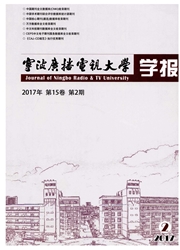

 中文摘要:
中文摘要:
终身教育共同体是以实现各种教育类型、教育形式与教育资源之间的互通、衔接和共享为愿景的.在其现实运行的过程中需要处理好构成因子之间的关系、与社会环境之间的关系以及自我的维持和修复.生态学中的生态位观、系统整体观与动态平衡观为进一步解读终身教育共同体和构建取向提供了良好的视角:以生态位观解读终身教育共同体构成因子之间共生与竞争的关系,明确构成因子自身的生态位,适应整合的生态目的;以系统整体观解读终身教育共同体与外在环境之间适应与超越的关系,树立开放共享的生态理念,与外在环境搭建畅通的沟通机制;以动态平衡观解读终身教育共同体自身发展过程中平衡与失衡的关系,坚持自我修复和完善,建立良性的生态循环系统。
 英文摘要:
英文摘要:
The lifelong education community aims to realize the communication, connection and sharing among various edu- cational types, education forms and education resources. In the process of its actual operation, it is necessary to deal with the relationships among the factors, the relationship between the community and the social environment, self-maintenance and self- repair problem. The ecological view, the holistic view and the dynamic balance in ecology provide a good perspective for further interpretation of the lifelong education community and the construction orientation. The ecological view interprets the relationship of coexistence and competition among the composition factors, defines its ecological niche to reach the purpose of integration. The holistic view explains the relationship of adaptation and transcendence between the community and the external environment to establish the ecological concepts of open and sharing, and build a smooth relationship with the external cnvironmem. The view of dynamic balance interprets the relationship between balance and imbalance in the process of its development, adhere to its selfrepair and self-development to compose a healthy ecological circulatory system.
 同期刊论文项目
同期刊论文项目
 同项目期刊论文
同项目期刊论文
 期刊信息
期刊信息
